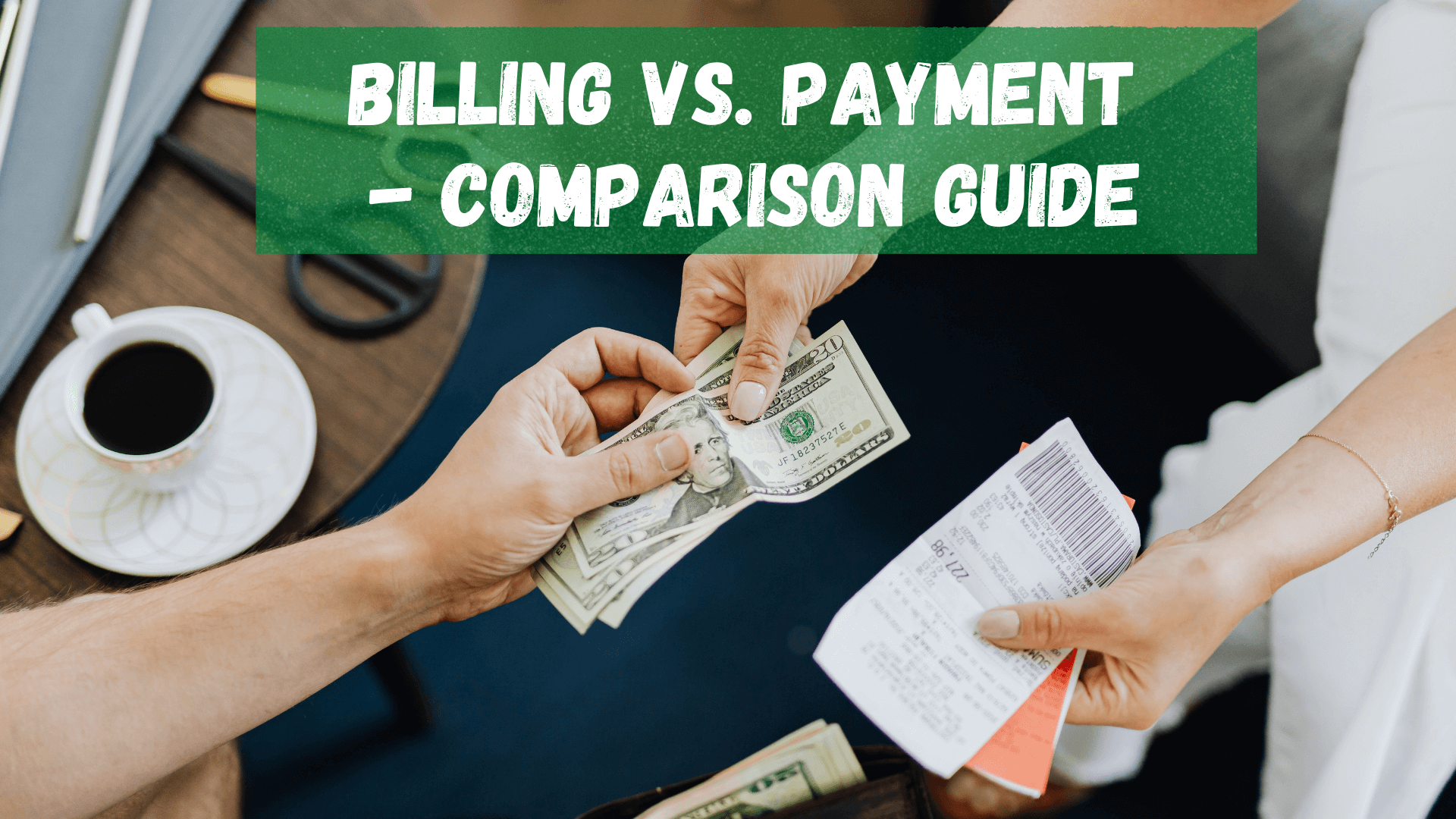There are a lot of different aspects to running a business. From human resources to marketing, you need to make sure that you cover all your bases if you want to be successful. One of the most important – but often overlooked – aspects of business is billing and payment. Understand the distinction between billing vs payment for you to know the right software to use for your business.
Many people don’t realize the differences between billing and payment or how they work together. This article will compare billing and payment and talk about why you need both for your business.
Comparison Between Billing and Payment
To start, let’s define billing vs payment to understand why they are different from each other:
Billing
Billing is the process of creating invoices for goods or services that have been provided. It’s all about knowing when and how much money you have. Unfortunately, there are relatively fewer billing systems on the market than payment systems. This is because billing is often seen as a subset of accounting, and there are already many accounting software options available.
Billing software will give you the ability to create invoices and track payments. Many billing systems will also allow you to set up recurring payments to bill your customers regularly without manually doing it.
Payment
Payment systems are all about getting paid and the act of moving and exchanging money for those goods or services. So many different payment options are available, from credit cards to PayPal to wire transfers. And there are just as many payment processors out there that can help you take advantage of those options.
Payment processors will typically offer a wide range of features, from the ability to accept payments online to automated fraud prevention. Many payment processors will also offer integrations with accounting and billing software so that you can manage all your finances in one place.
When to Use Billing Software
Billing software is a great option for businesses that need to invoice their customers regularly. If you have recurring charges, such as monthly subscriptions, then billing software can save you time by automating the invoicing process.
Billing software is also a good choice if you need to track payments and manage customer accounts. With most billing systems, you can see who owes you money, how much they owe, and when the payment is due. This information can be very helpful if you need to chase up late payments or follow up with customers who have outstanding balances.
When to Use Payment Processing Software
Payment processing software is a good choice for businesses that need to take payments online. If you have an ecommerce store, for example, then you will need a payment processor to accept credit card payments.
Payment processors can also be a good choice for businesses that need to automate their financial processes. For example, many payment processors offer integrations with accounting and billing software, so that you can manage your finances in one place. This can save you a lot of time and hassle, as you won’t need to manually transfer data between different systems.
Why You Need Both Billing and Payment Software
Now that we’ve talked about the differences between billing vs payment, you might wonder if you need one from the other or both. And the answer is the latter. You need billing software to keep track of what you’re owed and payment software to actually get paid.
Billing software will help you keep track of your invoices and ensure that you are getting paid on time. On the other hand, payment processors will help you accept payments from your customers and get the money into your account quickly and easily.
Both billing and payment are essential for any business. By understanding the differences between them, you can ensure that you have the right software to run your business smoothly.
How ReliaBills Can Help With Both
At this point, you already know that you need both billing and payment processing software to run a business. However, investing in both software can be costly as the price for each software ranges from a monthly fee of $20 to $100. Fortunately, with ReliaBills, you can have both billing and payment processing in a single platform while paying less than $25 per month.
ReliaBills is an all-in-one billing and payment processing software that offers both billing and payment processing solutions at an affordable price. With our software, you can manage your finances in one place, saving you time and money.
ReliaBills provides amazing billing and payment processing features such as:
- Invoicing
- Estimates
- Customer data management
- Installment billing
- Recurring billing
- Easy payments
- Collection Automation
- Customer Portal
- Reporting
- QuickBooks 2-way Sync
- And more!
With ReliaBills, you can bill and process payments with ease. Create your free account and upgrade it to ReliaBills PLUS for only $24.95 per month. In addition, you can cancel anytime you want to guarantee no further commitment or obligations.
Wrapping Up
Billing and payment are two concepts that work hand-in-hand but are still quite different from each other. Billing is more focused on issuing invoices and tracking payments, while payment processing is mainly about taking payments and transferring them into your account. Make sure you understand this distinction when running your business so that you will know what you need and use the right software for the job. Of course, you can always rely on ReliaBills to provide you with both.


